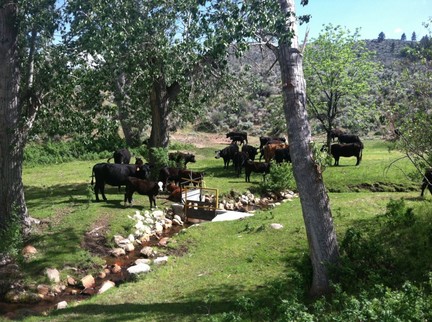 Happy cows grazing at Baker Ranch - Doyle, NV
Happy cows grazing at Baker Ranch - Doyle, NV This is not a trick question. Grass-finished is what it says...animals finished solely on grass and not fed supplemental grain. But does grain have a place at all in a cow or steers diet? The easy answer is to say no. Cows are bovines...large, domesticated ungulates, with a complex, 5-stomach, digestive system that is not intended to process grain but rather a robust variety of grasses and alfalfa. But in large commercial feeding operations, grain is pretty much all cattle receive because it is cheap and grows big beef fast. As a result, the cattle have to be injected with antibiotics frequently to keep from getting sick from their inappropriate diet.
Let's first understand the terminology around "cows"...Bulls are uncast rated males, steers are castrated males, and heifers are female cows who have not had a baby. And a cow is a female who has had a baby. Not sure how we came to classify them all as cows but that's the course history has taken. And another interesting fact...it is mostly steers that we eat.
A grain diet helps to marble the meat and make it tender. Grass-finished beef will be very lean, perhaps a little tough and for some, will have a very distinct, almost gamey, flavor. So how can we get the best of both worlds? I like to call it "farm finished."
When an animal is "farm finished," the animal stays on-farm all the way up to the day of slaughter. If you are fortunate like Northern Nevada, you have Wolf Pack Meats in Reno. It is one of the most well-respected, independent, USDA slaughter houses in the country where a rancher can slaughter but also have their meat cut and packed. The last part is what makes Wolf Pack Meats really unique. All the processing is done under one roof versus slaughtering in one facility and having to take the carcass to another facility to get it cut & packed.
When an animal is "farm finished," it means they finished out their life on the same ranch they were born. They are well-cared for, may have a name, have enjoyed a busy life of rotational grazing and have not received any hormones, antibiotics or steroids. Many cows start out their lives on pasture eating grass but then spend the final three quarters of their life at a feed-lot eating grain because there are few options for ranchers to "finish" their animals on farm and still make a living.
When an animal is "farm finished," the rancher has an intimate and personal relationship with their livestock. So if the rancher decides to add sustainably-sourced grain to an already grass-based diet at the end of an animal's life, is it so bad? The portions are monitored and only in the last month, does the animal get a larger feeding of grain in order to marble and tenderize the meat. The animals are still on "their" farm, with "their" rancher and in happy and healthy conditions. If I had one month to live, I would problem break some dietary rules as well and eat a few extra sweets and things.
At Baker Ranch in Doyle, NV, Karl Baker rotates 55 cows and their offspring around his family's 1200 acre ranch. After six months, the steers are separated from their mothers and graze for another 8-12 months on a 40-acre pasture where they graze, get fresh organic hay that is grown on site and receive a supplement of "brewery mash." Brewery mash is spent barley grain and a by-product of beer making. Karl is the former beer master at Great Basin Brewery in Sparks and saw an opportunity to recycle this duffy, oatmeal-looking mixture as a way to finish his cows and tenderize the meat naturally.
Scott and Karen Stone of Yolo Land & Cattle in Winters, CA raise grass-finished beef. You’d think they would be the first to bash any grain in a cow’s diet. Quite the contrary. Karen explained, “Grain is like sugar to cows. They love it!”
Another way to look at it is…Grass-finished is a style of farm finished. The only other style of farm finished is a supplement of sustainably-sourced grain at the end of an animal’s life. Both describe animals that are raised humanely, in small herds, and who have lived on the same farm their whole life. They are cows with a story!
The take-away is…feeding well-sourced grain to a cow in the last part of its life can be done sustainably and in a manner that is not harmful to the animal and does not require other inputs like hormones, antibiotics or steroids.
For foodies, we've got grain on the brain and think that grass-finished is the only way to judge the well-being of a cow and how it was raised. It precludes us from other good options. There is definitely more to the story. Basically, we need to know our food and ask questions. So the next time you are out for a meal; ask for farm finished and if they say grass finished then you know that is just as good!
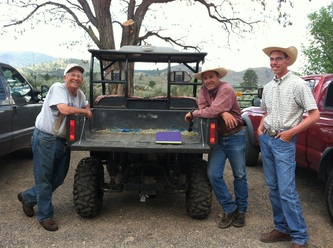
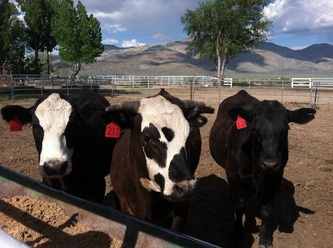
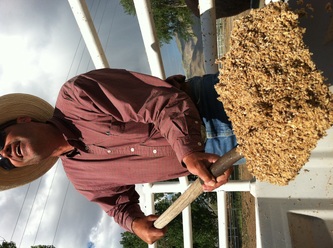
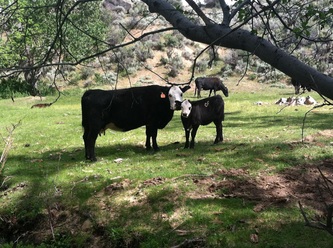
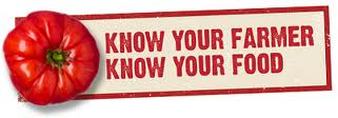

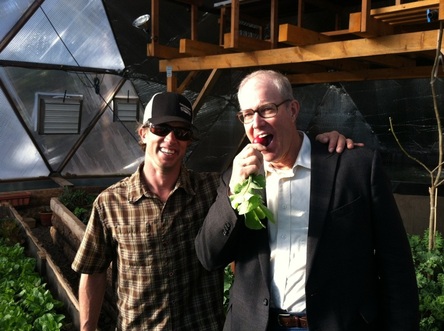
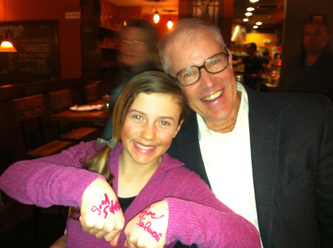

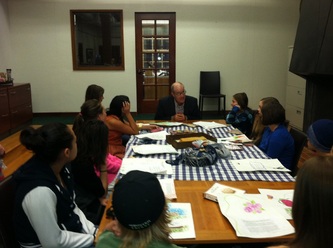

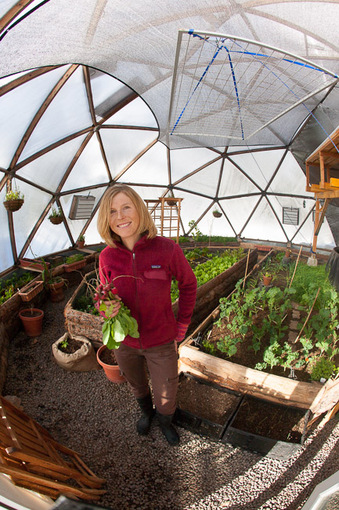
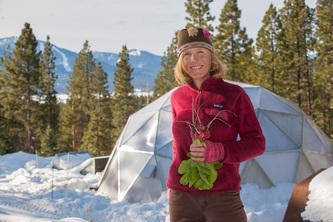
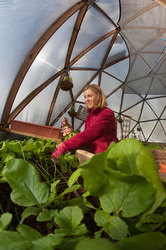

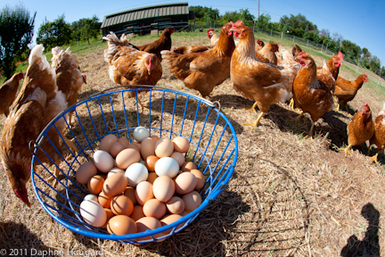
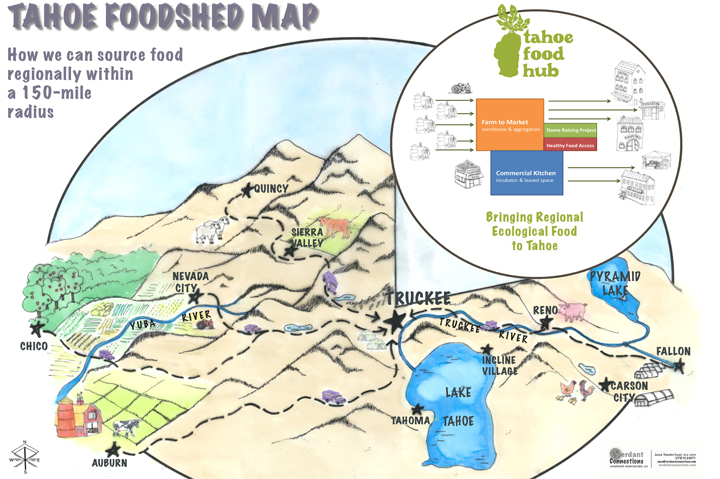
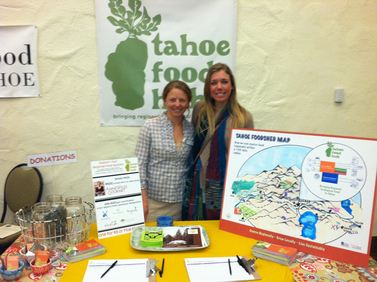
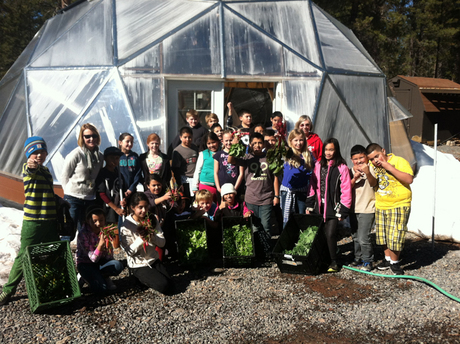
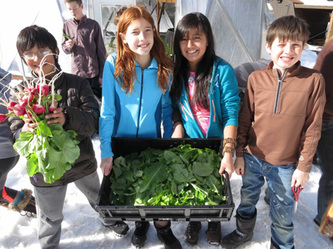
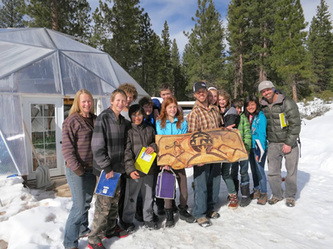
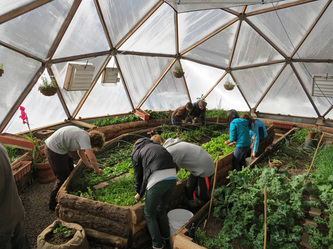
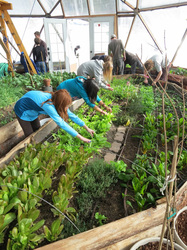
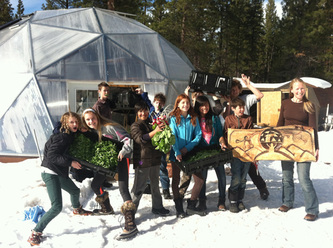
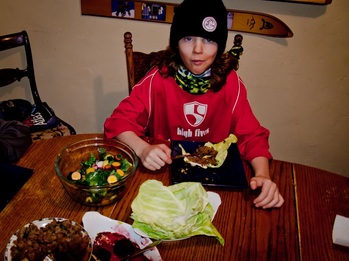
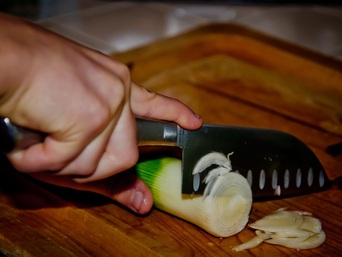
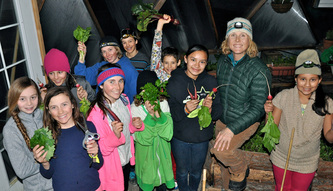
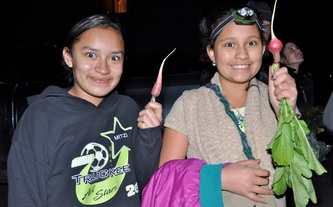
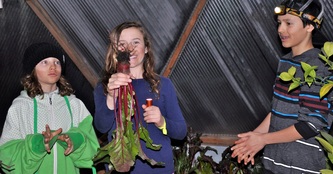
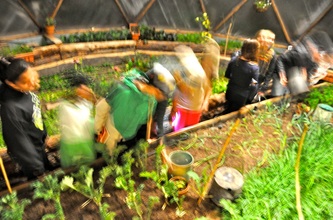

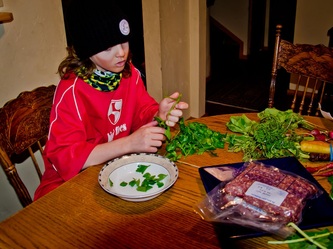


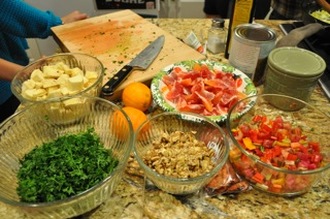

 RSS Feed
RSS Feed
